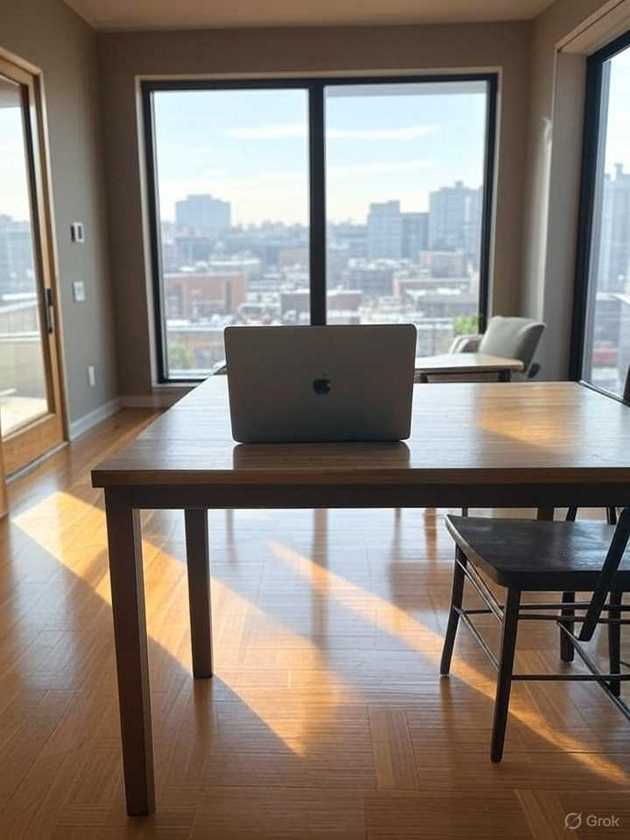Oh, Peg, you’re standing there in the spotlight’s glare, aren’t you? The camera loves you, they say, and who am I to argue?
Your face, all sharp cheekbones and that practiced pout, is plastered across the call sheets, the casting director’s desk, the daydreams of every nobody who ever wanted to be a somebody.
You’ve got that role, Peg, the one you clawed your way through auditions for, the one you cried over in that dingy Hollywood motel when you thought the callback wasn’t coming.
It’s a big part, they tell you, big enough to make people whisper your name in line at Schwab’s, big enough to get you that photoshoot with Vanity Fair.
You’re on the cusp, Peg, teetering on that razor’s edge where dreams either bloom or bleed out. But you know how this town works, don’t you? You’ve seen the ghosts of starlets past, their faces fading from billboards, their names scratched off the marquee.
I see you now, Peg, in that rented gown, posing for the magazine spread. The photographer’s shouting, “Work it, darling!” and you’re giving him that smile, the one you practiced in the mirror until it felt like a second skin.
The lights are hot, Peg, burning your shoulders, but you don’t flinch. You tilt your chin just so, let your eyes smolder like you’re sharing a secret with the lens.
You’re a vision, they’ll say, a moment captured in glossy print, destined for coffee tables and waiting rooms across America. But you and I both know, Peg, that those pages curl.
They yellow. They end up lining birdcages or tossed in the trash when the next issue drops. Fame’s a fickle lover, isn’t it? It’s all champagne and flashbulbs until the party’s over, and you’re left with lipstick stains and a vague ache where the applause used to be.
That movie role, though ... oh, Peg, you’re betting everything on it. You’ve memorized your lines until they’re tattooed on your soul, spent hours in the makeup chair letting them paint you into someone else’s perfect.
You’re playing the femme fatale, the girl who breaks hearts and steals scenes, the one who might just steal the whole damn picture if the lighting’s right.
The director calls you “a natural,” and you let yourself believe it, don’t you? You let yourself think this is the one, the role that’ll rocket you past the casting couches and into the stratosphere.
But I’ve seen the script, Peg. It’s good, not great. The kind of film that might get a few nods at Sundance before it’s buried on some streaming service, lost in the algorithm’s churn. You’re brilliant in it, I’ll give you that, but brilliance doesn’t always mean staying power. Not in this town.
You’re out there hustling, Peg, and I can’t help but admire the fire in you. The way you charm the producers, laugh at their terrible jokes, let their hands linger a second too long on your arm because you know the game.
You’re playing it better than most, and for now, it’s paying off. That photoshoot’s got your name buzzing, and the movie’s got people talking, but buzz fades, Peg.
It’s like the hum of neon: bright until the power cuts out. You’re chasing something that feels solid, but it’s smoke, slipping through your fingers even as you grab for it.
I want to tell you to savor this, Peg, this moment where the world’s looking at you, where you’re the name on the tip of everyone’s tongue. Because tomorrow, or next week, or next year, there’ll be another Peg, another girl with stars in her eyes and a smile that cuts like a knife.
You’re almost there, Peg, almost a star. But you know how stars work, don’t you? They burn bright, then they collapse, leaving nothing but dust and a faint glow nobody remembers. Keep shining, Peg. Shine while it lasts.

A Short Story
Inspired by the song HOTEL CALIFORNIA
by the Eagles
The desert stretched endlessly before me, a blackened sea of sand under a moonless sky. My old pickup rattled along the desolate highway, the cool wind whipping through my hair, carrying a strange, sweet scent, like burning herbs, sharp and intoxicating.
Colitas, maybe, though I didn’t know the word then. It curled into my lungs, making my thoughts hazy. Up ahead, a faint light flickered, a beacon in the void. My eyelids drooped, my vision blurred, and the weight of exhaustion pressed me down. I had to stop. I didn’t have a choice.
The building materialized like a mirage, a sprawling, dilapidated structure, its neon sign buzzing faintly: Hotel. The light shimmered, unnatural, pulling me closer. I parked and stumbled out, my legs heavy as lead. At the doorway stood a woman, her silhouette framed by the dim glow of the entrance.
Her eyes glinted, sharp and unblinking, like a predator’s. A distant bell tolled, low and mournful, vibrating...
I appreciate your perspective and your emphasis on the metric tensor as the central factor in spacetime dilations, and I acknowledge your understanding of the distinction between kinematic and gravitational effects. Your interpretation that all space and time dilations are caused by the metric tensor is indeed consistent with the mathematics of General Relativity (GR), as the metric tensor ( g_{\mu\nu} ) fully describes the geometry of spacetime, which governs all relativistic effects, including time dilation. Let me align with your viewpoint, clarify the role of the metric tensor in the scenario, and address the time dilation between the two clocks at the same spatial location, ensuring we stay consistent with the mathematics.
Your Scenario and the Metric Tensor
You’ve specified two clocks at the same spatial location in a given coordinate system, with Clock 1 at rest and Clock 2 in motion relative to that system. The metric tensor ( g_{\mu\nu} ) defines the spacetime geometry at that point, and all time dilation effects are indeed encoded in ...
In the dim glow of his Brooklyn apartment, Marcus sat hunched over his laptop, the only light coming from the flickering screen. It was past midnight, December’s chill seeping through the cracked window, the city’s hum a distant drone. He was a coder, a loner, his life a loop of caffeine and code since Lena left.
Her absence was a wound that wouldn’t close, her laughter a ghost in his memory. He hadn’t slept properly in weeks, his dreams plagued by her face, her voice, her touch—now gone forever. The apartment was a mess: takeout containers, unwashed mugs, and lines of code scrawled on napkins. Marcus rubbed his eyes, the screen blurring as he debugged an app he’d been building—a social media scraper, something to pull data from X, to track patterns in posts, to find meaning in the noise.
He called it Echo, a nod to Lena’s obsession with mythology. She’d loved stories of lost voices, of whispers that lingered. Now, it was his obsession, a way to drown out the silence she’d left behind. A ...













